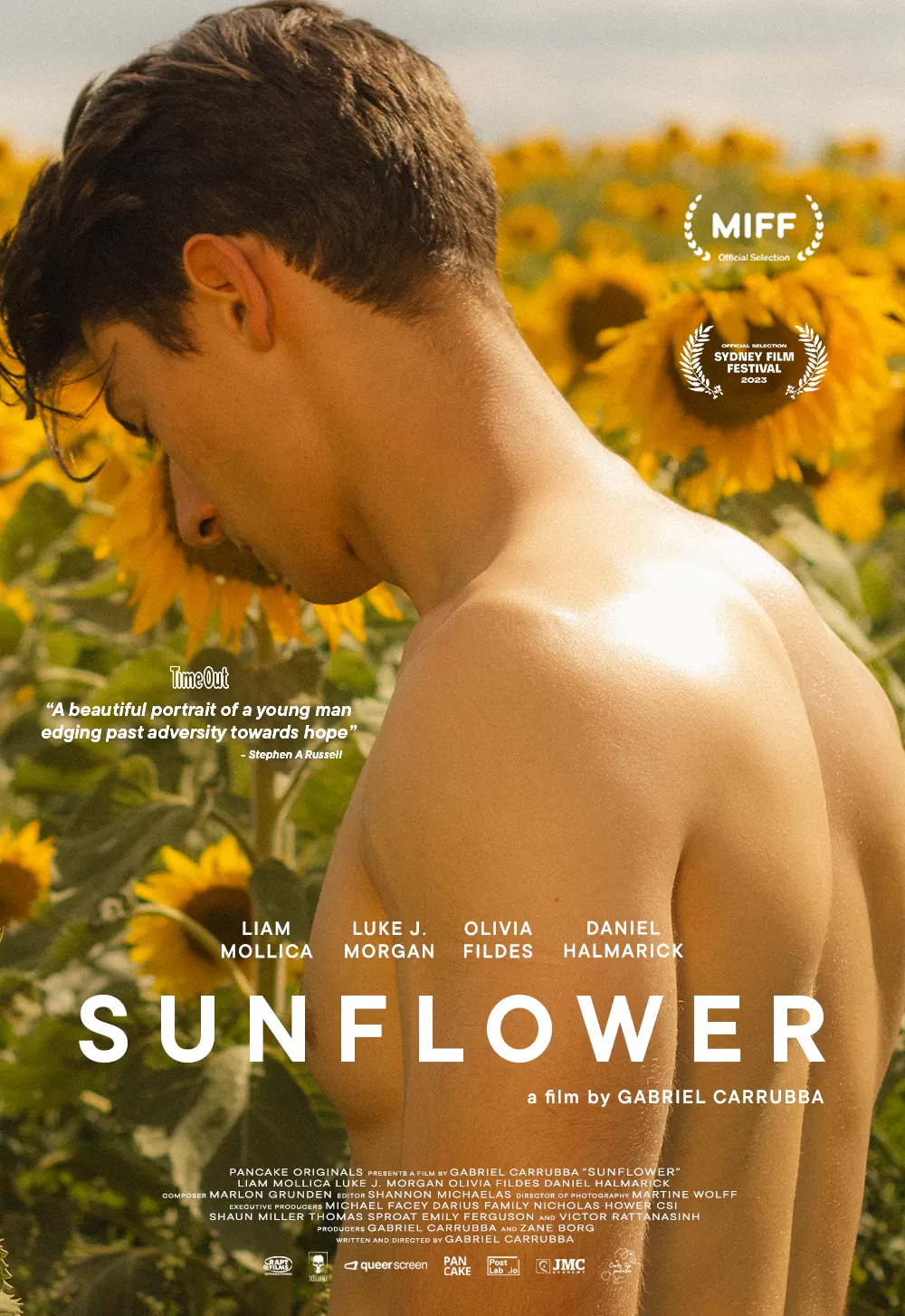I dove into Sunflower (Australia) with real hope—this story promised a raw glimpse into the tangled emotions of teenage identity, and at first, it truly delivered. The early scenes pulled me in, wrapped in the nervous thrill of a seventeen-year-old Leo’s journey: a handsome Greek-Italian kid caught between the confusing pull of expected norms and his heart’s secret desires. It felt like stepping back into the 90s, a world without cellphones buzzing away—where messages were slower, but somehow heavier with possibility and fear.
Leo’s world is familiar—a tight-knit family, a best mate named Boof, and the quiet, aching crush on his brother’s friend Tom. Watching Leo fumble through the clumsy dance of adolescence, stealing glances, sharing uncertain kisses beneath the stars, was touching. The scene where Leo, unable to go through with expectations at a party, simply lies on the grass felt like a quiet crater of vulnerability—like watching someone breathe through a storm inside them. When Boof enters that fragile space to offer a kiss, it’s charged with an innocence and confusion I remembered all too well from my own younger days.
But then, something shifted. Suddenly, the narrative fractured, the film slipping into silence—as if a new voice stepped in mid-story and forgot to explain the how or why. We’re left piecing together shards: Boof’s betrayal, the brutal backlash from the school, and the sudden isolation Leo faces. Why did Boof out Leo? And when exactly did the whispers start? The film leaves us in the dark, denying us the full weight of Leo’s devastation. I found myself yearning for more—more clarity, more raw emotion to cradle that pain—not just the quiet aftermath.

One thing that kept me tethered despite these gaps was the beautifully expressive cast. Leo’s actor has eyes that tell tales—every glance a fragile poem. They capture that tender ache of rejection and the first sparks of self-love with subtlety that feels painfully real. Tom’s calm, steady presence is like a warm lighthouse in Leo’s storm, his quiet confidence a balm to the young boy’s fractured spirit. Their rare moments together are small treasures, glowing with the promise of hope and acceptance, the kind every queer teenager deserves but so few find easily.
Then there’s Boof, tangled in his own shadows—his internalized homophobia casting long, dark clouds. His character feels like a cautionary whisper about how our fears can warp loyalty and love, turning best friends into strangers or worse. The recurring sunflower—bright, defiant—blooms throughout the film as a haunting metaphor for Leo’s growth, his struggle to stand tall in a world that often tries to uproot him.
Yet, some parts just didn’t sit right with me. The adults, especially Leo’s father, who seems more thundercloud than shelter—why shout at a boy coming home soaked in blood? Where’s the caring hand or the searching eyes? It felt off, like a missed chance to unfold the wider family dynamics that could make Leo’s courage even more poignant.
In the end, Sunflower is a tender, flawed portrait—a film that dares to shine a light on the harshness of homophobia and the resilience of youth striving to find their tribe. Watching Leo’s painful yet hopeful journey reminded me how far we’ve come, but also how vital these stories remain. With every shadow cast by cruelty, there’s a stubborn seed of joy and pride waiting to break through. And if anything, this film’s quiet message whispered loudly to me: it really does get better.


Your description of Leo’s journey is beautifully evocative; it really captures the complexities of teenage emotions and the nostalgia of that era. I especially loved how you illustrated those pivotal moments of vulnerability and connection—they felt so relatable and true to the experience of growing up.